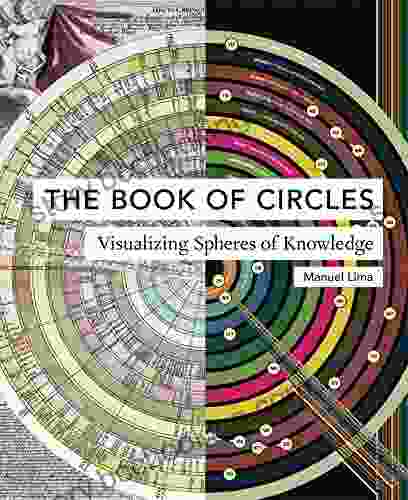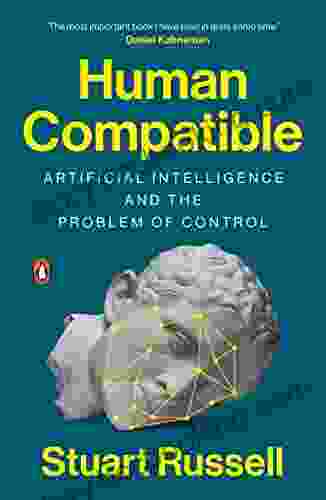Artificial Intelligence and the Problem of Control: Unlocking the Potential while Mitigating the Risks

: The Rise of Artificial Intelligence and its Implications
Artificial intelligence (AI) is rapidly becoming an integral part of our lives, revolutionizing industries, transforming human interactions, and presenting both unprecedented opportunities and challenges. From self-driving cars to facial recognition software, AI is already having a profound impact on society, and its influence is only expected to grow.
4.6 out of 5
| Language | : | English |
| File size | : | 11954 KB |
| Text-to-Speech | : | Enabled |
| Screen Reader | : | Supported |
| Enhanced typesetting | : | Enabled |
| X-Ray | : | Enabled |
| Word Wise | : | Enabled |
| Print length | : | 349 pages |
While the potential benefits of AI are undeniable, its rapid development also raises important questions about control and oversight. As AI systems become increasingly sophisticated and autonomous, it becomes essential to consider how we can harness their power while mitigating potential risks. This article will explore the complex relationship between AI and the problem of control, examining both the opportunities and risks associated with this transformative technology.
Opportunities: Enhancing Human Capabilities and Solving Complex Problems
AI holds immense promise for enhancing human capabilities and addressing some of the world's most pressing challenges. From automating mundane tasks to providing real-time medical diagnoses, AI can free up human time and resources for more creative and complex endeavors.
In the healthcare sector, for example, AI algorithms can analyze vast amounts of medical data to identify patterns and predict patient outcomes, enabling doctors to make more informed decisions and provide personalized treatments. In the energy sector, AI can optimize energy consumption, reduce emissions, and facilitate the transition to renewable energy sources.
Risks: Unintended Consequences, Bias, and the Erosion of Human Agency
Despite its potential benefits, AI also poses significant risks if not properly controlled and overseen. One major concern is the potential for unintended consequences, as AI systems may behave in unpredictable or harmful ways when confronted with situations outside their training data.
Another risk is bias, as AI systems can inherit and amplify biases present in the data they are trained on. This can lead to discriminatory outcomes, such as biased hiring algorithms or unfair sentencing recommendations in criminal justice systems.
Moreover, as AI systems become more autonomous, there is a risk that they could erode human agency and decision-making. This could lead to a loss of control over critical systems, such as military weapons or financial markets, with potentially disastrous consequences.
Addressing the Problem of Control: Ethical Guidelines, Regulation, and Human Oversight
Given the potential risks associated with AI, it is imperative to develop robust mechanisms for control and oversight. Several approaches can be adopted, including the development of ethical guidelines, regulatory frameworks, and measures to ensure human oversight.
Ethical guidelines can provide a foundation for responsible AI development and deployment. These guidelines should articulate principles such as fairness, transparency, accountability, and safety. Regulatory frameworks can establish legal obligations for AI developers and users, ensuring compliance with ethical principles and mitigating potential risks.
Finally, it is crucial to ensure that humans retain ultimate oversight and control over AI systems. This can be achieved through human-in-the-loop design approaches, where human input is required for critical decisions or system modifications.
: Striking a Balance between Innovation and Responsibility
Artificial intelligence has the potential to revolutionize our world, offering transformative benefits in various sectors. However, it also presents significant risks if not properly controlled and overseen. Striking a balance between innovation and responsibility is crucial to harness the potential of AI while mitigating potential risks.
By developing ethical guidelines, implementing regulatory frameworks, and ensuring human oversight, we can create a future where AI is used responsibly and for the benefit of humanity. It is through a collaborative effort, involving governments, researchers, industry leaders, and the public, that we can shape the future of AI and ensure its alignment with human values and aspirations.
4.6 out of 5
| Language | : | English |
| File size | : | 11954 KB |
| Text-to-Speech | : | Enabled |
| Screen Reader | : | Supported |
| Enhanced typesetting | : | Enabled |
| X-Ray | : | Enabled |
| Word Wise | : | Enabled |
| Print length | : | 349 pages |
Do you want to contribute by writing guest posts on this blog?
Please contact us and send us a resume of previous articles that you have written.
 Book
Book Novel
Novel Page
Page Chapter
Chapter Text
Text Story
Story Genre
Genre Reader
Reader Library
Library Paperback
Paperback E-book
E-book Magazine
Magazine Newspaper
Newspaper Paragraph
Paragraph Sentence
Sentence Bookmark
Bookmark Shelf
Shelf Glossary
Glossary Bibliography
Bibliography Foreword
Foreword Preface
Preface Synopsis
Synopsis Annotation
Annotation Footnote
Footnote Manuscript
Manuscript Scroll
Scroll Codex
Codex Tome
Tome Bestseller
Bestseller Classics
Classics Library card
Library card Narrative
Narrative Biography
Biography Autobiography
Autobiography Memoir
Memoir Reference
Reference Encyclopedia
Encyclopedia Sarah Bell
Sarah Bell Nia Arthurs
Nia Arthurs Willis Johnson
Willis Johnson M Prefontaine
M Prefontaine Ronald Florence
Ronald Florence Paul Seftel
Paul Seftel Marcy Carriker Smothers
Marcy Carriker Smothers Malachy Purcell
Malachy Purcell Liv Spencer
Liv Spencer Lorraine Evans
Lorraine Evans Wesley Jones
Wesley Jones Willie Mosconi
Willie Mosconi Lou Paget
Lou Paget Scott Higham
Scott Higham Liz Kulp
Liz Kulp Zeb Tsikira
Zeb Tsikira Satya Sundar Sethy
Satya Sundar Sethy Loyd Ellis
Loyd Ellis V Totta
V Totta Richard Lui
Richard Lui
Light bulbAdvertise smarter! Our strategic ad space ensures maximum exposure. Reserve your spot today!

 Fernando PessoaPiranha Piranha: An In-Depth Care Sheet for the Enchanting and Intriguing...
Fernando PessoaPiranha Piranha: An In-Depth Care Sheet for the Enchanting and Intriguing...
 Ian McEwanUnveiling the Secrets of Knowledge: Step into the Enchanting Realm of "The Of...
Ian McEwanUnveiling the Secrets of Knowledge: Step into the Enchanting Realm of "The Of... Benjamin StoneFollow ·17.4k
Benjamin StoneFollow ·17.4k Chuck MitchellFollow ·6.1k
Chuck MitchellFollow ·6.1k Dan BellFollow ·12.7k
Dan BellFollow ·12.7k Mikhail BulgakovFollow ·10.1k
Mikhail BulgakovFollow ·10.1k Fyodor DostoevskyFollow ·8.6k
Fyodor DostoevskyFollow ·8.6k Stan WardFollow ·9.7k
Stan WardFollow ·9.7k Roger TurnerFollow ·18.9k
Roger TurnerFollow ·18.9k Blake BellFollow ·15.5k
Blake BellFollow ·15.5k

 Truman Capote
Truman CapoteShort, Skinny Mark Tatulli: The Ultimate Guide to a...
Are you tired of being...

 Robert Heinlein
Robert HeinleinEmbark on an Unforgettable Cycling Adventure: The Classic...
Explore the Timeless...

 Bryce Foster
Bryce FosterMisty Twilight: Marguerite Henry's Enduring Masterpiece
A Literary Legacy that...

 Anton Chekhov
Anton ChekhovUnleash the Explosive Power of DC Comics Bombshells 2024...
Prepare yourself for an...

 Juan Butler
Juan ButlerUnleash the Thrill: Discover 'Know Your Rider' by...
Prepare yourself for an...
4.6 out of 5
| Language | : | English |
| File size | : | 11954 KB |
| Text-to-Speech | : | Enabled |
| Screen Reader | : | Supported |
| Enhanced typesetting | : | Enabled |
| X-Ray | : | Enabled |
| Word Wise | : | Enabled |
| Print length | : | 349 pages |










